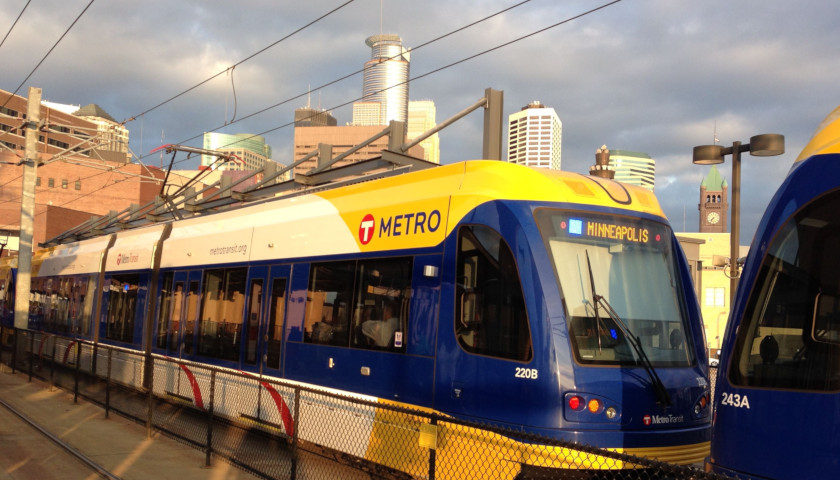The Twin Cities Met Council announced Wednesday that it has received approval from the federal government to begin construction on its controversial $2 billion Light Rail extension.
In a Wednesday press release, the Met Council announced that the Federal Transit Administration (FTA) has granted it a Letter of No Prejudice, which is a “critical milestone” essentially guaranteeing reimbursement from the federal government for some of the project’s construction costs.
In total, the federal government will likely end up paying $929 million of the $2 billion project.
“This news is long-awaited and hard-earned,” Gov. Mark Dayton said. “The Southwest Light Rail Transit Project is a critical economic development project for the people of Minnesota. When complete, it will improve many thousands of lives from Eden Prairie to North Minneapolis. It will create new jobs, reduce highway congestion, and better connect Minnesotans to one another.”
The extension will stretch 14.5 miles from Minneapolis to Eden Prairie, with 16 stations along the way in cities such as St. Louis Park, Edina, Hopkins, and Minnetonka. Construction is expected to begin this winter, but won’t be completed until 2023—after Gov.-elect Tim Walz’s first term is complete.
Several newly-elected Democrats praised the federal government’s approval of the project, including congressman-elect Dean Phillips (D-MN-03), who said that the “$1 billion investment in Southwest Light Rail will spur job growth, provide access to employment, and incentive further economic development in communities along the line.”
“I have been, and will continue to be, a vocal advocate for infrastructure investments,” he said in a press release. “I look forward to working with my colleagues in Congress, the Minnesota Legislature, and the Walz administration to ensure these important projects are completed.”
Keith Ellison, Minnesota’s next attorney general, also cheered the project’s approval, calling it a “landmark achievement.”
“We can start construction on one of the largest infrastructure projects in Minnesota’s history,” he said. “This will help folks get around while also reducing our carbon footprint and reliance on fossil fuels.”
The Met Council and its $2 billion infrastructure project haven’t gone without their fair share of criticism. In fact, the Met Council itself is currently facing a federal review by the Federal Transit Administration over its undemocratic structure, which allows every member of the council to be appointed by the governor.
Of the 400 similar organizations across the country, the Met Council is the only Metropolitan Planning Organization exempted from a federal elected-representation requirement—an exemption that was grandfathered in by the Obama administration.
Minnesota’s Center of the American Experiment has conducted extensive research on the Light Rail extension, and notes that the Met Council’s 2030 transportation plan explicitly states that the new line will not reduce traffic congestion.
“The Council recognizes that congestion will not be eliminated or significantly reduced in the Metropolitan Area,” its 2030 transportation plan states, and even predicts that traffic will “worsen” in the region.
The Center also found that the Light Rail actually causes congestion, since it “displaces” traffic and gives train signals priority over traffic signals, which adds an estimated 20 to 40 minutes to commutes.
Additionally, the Light Rail can only hold 450 people at a time, and with a current rate of moving about 20 trains per hour, each track has “a capacity of only 9,000 people per hour,” the Center explains.
The Center concludes its report, which The Minnesota Sun previously reported on, by revealing that the Met Council doesn’t have any real plans to reduce traffic congestion.
“The problem is that the responsible government agencies are not trying to reduce road congestion,” the Center states. “Indeed, it often appears that they welcome congestion, because impossible driving conditions will force Twin Cities residents out of their cars onto trains, buses and bicycles.”
– – –
Anthony Gockowski is managing editor of The Minnesota Sun. Follow Anthony on Twitter. Email tips to [email protected].




